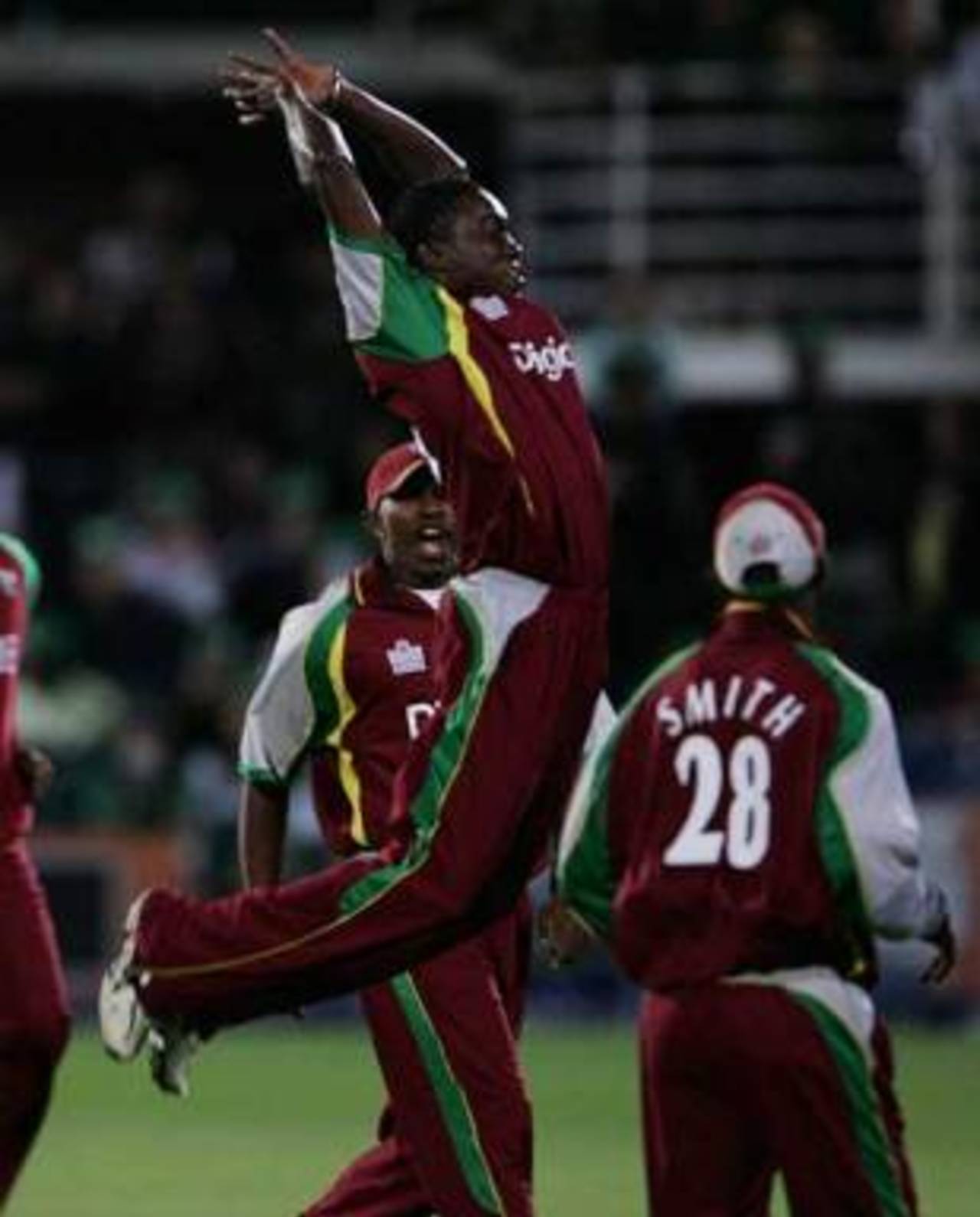For the second successive one-day international, West Indies found themselves chasing an overwhelming total-and losing-in the first of the four-match ODI series against India at Sabina Park on Friday.
In each case, the decisive factors were their inability to manage what have become two of the most critical phases of a limited-overs innings - the batting Powerplay, the ODIs' most recent innovation that restricts the fielding team to three men outside the 30-yard ring over a chosen block of five overs, and the closing runs-charge of the opponents' innings.
On Friday, India plundered 62 off their Powerplay overs (34-37) and 82 off their last ten to end 339 for six. Exactly a month earlier, in the last of the three ODIs
at Edgbaston, England scored 55 in their Powerplay and 90 from their last ten overs to amass 328 for 7.
In contrast, West Indies on Friday could only raise 36 after calling for their Powerplay between overs 36 to 40 and 67 from overs 40 to 48 as they fell 20 runs short.
At Edgbaston, where they lost by 58, the split was 44 from the Powerplay and 70 off the last ten.
The concluding overs have always been vital in the abbreviated game. They gave rise to the terms, the "finisher" in batting and the "death" bowler, both essential to teams seeking consistent success.
The former describes those batsmen skilful and astute enough to time their final push for the line to perfection. None was better than the left-handed Australian Michael Bevan who could accelerate as suddenly and rapidly as any F1 driver. Ramnaresh Sarwan once filled the bill for West Indies.
The batting Powerplay has further enhanced such an ability to swiftly switch gears. Yuvraj Singh spent 55 balls over his first 50 on Friday. Well set by the time the Powerplay was called for, he lashed four sixes and four fours in scoring 45 from 16 balls in its five overs.
The term "death" bowler refers to those adept at countering the inevitable batting grand charge in the dying overs with bat-jarring yorkers and cool, calculating heads. It is a special attribute even some of the finest find difficult to master.
Umar Gul, the tall, slim Pakistani, Wayne Parnell, the 19-year-old South African left-armer, and Lasith Malinga, the Sri Lankan slinger, were as near to perfection with the method in the recent World Twenty20 in England. Significantly, their teams all reached the semi-finals. The same principle applies to the 50-overs version.
If power-hitting, sharp running between the wickets and athletic fielding remain basic elements, "finishers" and "death" bowlers have become increasingly vital as the shorter format has evolved, especially so with the introduction and the increasing significance of the Twenty20.
A range of new strokes have been devised to counter restrictive field placing - the reverse-sweep, the switch-hit, the scoop, the ramp-with the inevitable response of increased bowling varieties.
Those teams late to appreciate the changes will find themselves floundering towards the bottom of the limited-overs standings. West Indies are not the only one in that category. Strangely, given their prolonged domination, Australia's deficiencies have now been exposed in both World Twenty20 championships.
As with everything else, whatever the sport, practice makes perfect. West Indies are hindered in that regard by the low standards and limited itinerary of the regional one-day tournaments so it requires concentrated work in the nets, especially in developing "death" bowlers.
As effective as they can be with their pace and hostility in their opening bursts, Fidel Edwards and Jerome Taylor are generally expensive on return.
Taylor had a wicket and only 16 runs from his first five, demanding overs on Friday. His last five, in two spells, went for 58 without a wicket. In
Abu Dhabi in November, he conceded 17 off the final over as Kamran Akmal went after him to claim unlikely victory for Pakistan.
If it is any consolation, his great fellow Jamaican Courtney Walsh was taken for 17 and 18 off final overs that put
West Indies out of the 1987 World Cup in Pakistan and India. Even Malcolm Marshall wasn't comfortable at the death.
Perhaps Lionel Baker and Ravi Rampaul, purposefully drilled in the special requirements, can fill the breach. Sulieman Benn is another capable of keeping the full length and direct line to curb free-swinging bats.
The timing of the Powerplay is as critical as the batsmen who are there to carry it out.
India got theirs spot-on on Friday, when Yuvraj was primed to go with MS Dhoni as his partner. The West Indies took theirs after their most effective middle-order striker, Dwayne Bravo, had been farcically given out on a clear above-the-waist no-ball that was ruled legal by an inept umpire.
Yet there is the need for another accomplished belter to take advantage of the Powerplay should it come along within the last 15 overs, as it usually does.
With his record for six-hitting at regional level, it was hoped Keiron Pollard would be the man. After ample evidence, it is obvious he wasn't.
Like Pollard, Dwayne Smith is one whose reputation as a dangerous six-hitter has been compromised by a modest international record following his hundred against South Africa on Test debut six years ago.
He has been strutting his stuff over the past two years, with some success, for the Deccan Chargers in the IPL and English county, Sussex, but, according to chairman of selectors, Clyde Butts, has declared himself unavailable for West Indies.
So the search needs to be carried elsewhere.
The schedule over the coming 12 months is filled with plenty of limited-overs cricket - the Champions Trophy in South Africa in September, seven ODIs in Australia next February, the third World Twenty20 in the Caribbean two months later followed by five ODIs against South Africa at home.
There is an urgent need to find "finishers", "death" bowlers and those who understand the value of the batting Powerplay.
